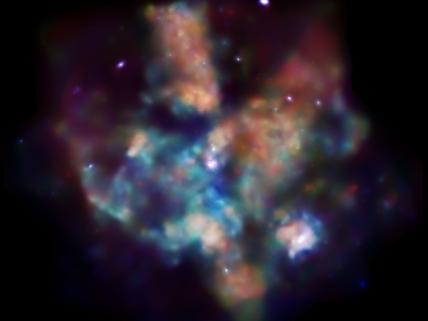 I posted the other day about a feature I've written for this week's issue of New Scientist, about Archimedes' links to the Antikythera mechanism. The device embodied the ancient Greeks' latest knowledge about the nature of the cosmos, so I was happy to see another feature in the same issue that discusses state-of-the-art thinking from today's cosmologists. It's the idea that our universe did not begin with the Big Bang. Instead, it bounced into existence when a previous universe collapsed in on itself. Rather than collapsing to nothing, this previous universe shrank to a fiery state of almost unimaginable density and temperature (equivalent to squeezing a trillion Suns into the space normally occupied by a proton), then rebounded and started expanding again. Physicists think this could be part of an eternal series of expansions and contractions, with no beginning and no end.
I posted the other day about a feature I've written for this week's issue of New Scientist, about Archimedes' links to the Antikythera mechanism. The device embodied the ancient Greeks' latest knowledge about the nature of the cosmos, so I was happy to see another feature in the same issue that discusses state-of-the-art thinking from today's cosmologists. It's the idea that our universe did not begin with the Big Bang. Instead, it bounced into existence when a previous universe collapsed in on itself. Rather than collapsing to nothing, this previous universe shrank to a fiery state of almost unimaginable density and temperature (equivalent to squeezing a trillion Suns into the space normally occupied by a proton), then rebounded and started expanding again. Physicists think this could be part of an eternal series of expansions and contractions, with no beginning and no end.
There's as yet no experimental evidence for this idea but the model is gaining increasing support - alternative theories simply break down when they get too close to the moment of the universe's creation.
The Greeks may not have been surprised by the Big Bounce. One of their main schools of philosophy, Stoicism, held that the history of the universe was an endless series of cycles, in which the entire cosmos was periodically destroyed in a huge fire, or "conflagration", before being created anew.